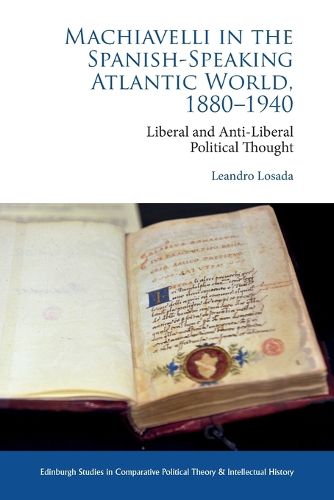Readings Newsletter
Become a Readings Member to make your shopping experience even easier.
Sign in or sign up for free!
You’re not far away from qualifying for FREE standard shipping within Australia
You’ve qualified for FREE standard shipping within Australia
The cart is loading…






Combining historiography and political theory, this book compares different strands of Machiavelli's reception in South and North America, and between Hispanic America and Spain. It provides new insight into Machiavelli's writings and how they have been read in different contexts. The book analyses these readings focusing on some specific themes including: the relationship between politics and morals; the links between political power and freedom; debates about political realism; reflections on liberalism and republicanism; and conceptions of time and history. The book argues that Machiavelli had a significant impact on both liberal and anti-liberal authors from Argentina and Spain. For liberals, he represented a synonym of tyranny but also, in opposite way, he had offered a synthesis between republicanism and liberalism. For anti-liberals, he was associated with Modernity and liberalism.
$9.00 standard shipping within Australia
FREE standard shipping within Australia for orders over $100.00
Express & International shipping calculated at checkout
Combining historiography and political theory, this book compares different strands of Machiavelli's reception in South and North America, and between Hispanic America and Spain. It provides new insight into Machiavelli's writings and how they have been read in different contexts. The book analyses these readings focusing on some specific themes including: the relationship between politics and morals; the links between political power and freedom; debates about political realism; reflections on liberalism and republicanism; and conceptions of time and history. The book argues that Machiavelli had a significant impact on both liberal and anti-liberal authors from Argentina and Spain. For liberals, he represented a synonym of tyranny but also, in opposite way, he had offered a synthesis between republicanism and liberalism. For anti-liberals, he was associated with Modernity and liberalism.